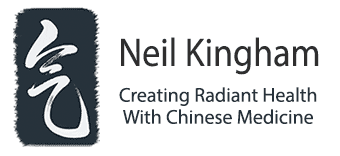Fibromyalgia Treatment with Chinese Medicine
A recent study has found that T’ai Chi can improve quality of life for fibromyalgia sufferers, with both mental and physical improvements noted for the T’ai Chi group, significantly more than the control group who were given wellness education and stretching exercises.
Although this was a small scale study, it is further evidence for the health benefits of T’ai Chi and Qi Gong, especially for difficult conditions such as fibromyalgia, which Chinese Medicine classes as ‘knotty problems’ which involve complex interconnections of different causes and symptoms. A number of previous studies have also shown that acupuncture can significantly improve symptoms in fibromyalgia, especially pain, fatigue and anxiety.
Fibromyalgia is a complex condition involving pain and other symptoms such as tiredness, increased sensitivity to gentle touch, weakness of the limbs, sleep problems, anxiety, depression and muscle spasms. Difficulty concentrating and problems with the memory are common – this is often referred to as ‘brain fog’ or ‘fibro-fog’. The clinical picture varies tremendously from person to person, with each individual having different symptoms.
The cause of fibromyalgia is not understood by conventional medicine. A number of ideas have been proposed, relating to sleep disturbance, stress, and abnormality of neurotransmitters (such as dopamine and serotonin) in the brain. Because this is a poorly understood condition, Western medicine has little to offer by way of treatment – drugs used include analgesics, muscle relaxants, hormones, anti-depressants and anti-seizure medication. Naturally, there are side-effects with most of these drugs, and the success rate is quite low.
Chinese Medicine For Fibromyalgia
In Chinese medicine, complex conditions with many inter-related symptoms such as fibromyalgia are called ‘knotty problems’, reflecting the way that everything is related to everything else and the only way to treat the condition with any success is to ‘unpick’ the knot of symptoms.
For ‘knotty problems’ such as fibromyalgia the individualised, holistic treatment offered by Chinese Medicine can be very effective – that means that there is no ‘one size fits all’ approach, but everyone is treated differently. Results are also much better when an integrated approach to treatment is followed, using more than one branch of Chinese medical treatment, as I do in my own Bristol and S.Wales clinics.
Acupuncture and Tui Na Massage can be used to regulate the hormones and strengthen the Qi to boost energy levels and reduce anxiety. Tui Na is especially good for relaxing tense muscles and easing muscle spasm.
Chinese herbal medicine also has a lot to offer. It helps to strengthen the whole system, clear ‘brain-fog’, improve the digestion and boost energy levels.
Nutrition can be extremely useful to reinforce the effects of the treatment, especially in improving energy levels and clearing ‘brain fog’. And as the recent research has shown, regular T’ai Chi or Qi Gong practice can also significantly improve overall health and reduce symptoms.
As the symptoms of fibromyalgia are interconnected, an integrated approach involving more than one type of therapy can tackle different symptoms at the same time, leading to a gradual improvement in all areas of health and well-being. In my experience, this is normally considerably more effective than just one kind of treatment, eg acupuncture alone.
You can find out more about my UK Chinese medicine practice, or contact me for more information
Details of the T’ai Chi and Fibromyalgia study can be found here:
http://www.nejm.org/doi/pdf/10.1056/NEJMoa0912611






Trackbacks & Pingbacks
[…] This week’s blog/site: : https://neilkingham.com/2010/09/fibromyalgia-treatment-chinese-medicine/ […]
Comments are closed.